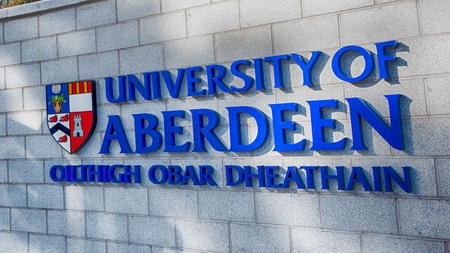The University of Aberdeen is a partner in a new professional support network for Gaelic community officers who are working to increase the use of the language.
The University of Aberdeen is a partner in a new professional support network for Gaelic community officers who are working to increase the use of the language.
Together with Sabhal Mòr Ostaig and Comunn na Gàidhlig the University will provide professional development and learning, opportunities for knowledge exchange as well as increasing collaboration and providing peer support.
A growing number of third sector organisations employ Gaelic officers working with various communities in Scotland. Many of these roles are funded by Bòrd na Gàidhlig along with other public bodies, and many of the officers are the sole Gaelic officer within a wider organisation.
The officers work in a range of sectors – youth work, business, environment, arts – and most are employed in Western Isles and Highland, with some based in Argyll & Bute, Glasgow and Edinburgh. There are some 40 full-time or part-time roles.
The network will be evaluated at the end of the first year to determine future developments which may include the creation of a vocational programme for Gaelic officers.
Shona MacLennan, Ceannard, Bòrd na Gàidhlig, said “We recognise the importance of officers working with a range of communities on increasing the use of Gaelic.
“We wanted to provide additional support for them, many of whom are young people, particularly to increase collaboration, peer support and opportunities for professional development and learning.”
Deputy First Minister John Swinney said: “The Scottish Government is committed to supporting the Gaelic communities in which the Gaelic Development Officers work. It is important these individuals are given the support and training they need to enable them to meet the expectations of our communities and I hope that this project delivers on our aims.
“I am also pleased to say that the Scottish Government has also provided Bord na Gàidhlig with an additional £150k of funding which will allow more Gaelic Development officers to be recruited to help support our vernacular Gaelic communities. This will strengthen the support already available in these areas.”
“These officers are extremely important to Gaelic development efforts in the community, whatever specific sector they work in,” said Dòmhnall MacNèill, Ceannard, Comunn na Gàidhlig.
“We recognise that their work is challenging and we want to provide them with an opportunity for practical support in their day to day work – whether that comes from simply speaking to another officer in the new network, or from the training and development opportunities we will establish.”
Michelle Macleod, Professor of Gaelic at the University of Aberdeen, added, “I am delighted to be participating in this really exciting initiative. My previous research with community language animateurs highlighted the importance of these individuals in having real impact in Gaelic communities.
“My research also showed that employees in such a crucial role need supported, as working in a community situation, while hugely rewarding and enjoyable, can sometimes be isolating. This new network will give individuals the opportunity to come together to support each other and to develop their professional skills in a way that is beneficial for the communities they serve.”
Gillian Munro, Principal of Sabhal Mòr Ostaig said: “We are delighted to work together with our colleagues, at the University of Aberdeen and at Comann na Gàidhlig, to help establish this exciting, new support and training network for Gaelic development officersin Scotland. It is important to stress that this network is being set up solely for the purpose of supporting Gaelic development officers in their work, to provide training opportunities and as a forum where officers can meet and share experiences, and that it is not our intention, or the Bòrd’s intention, to direct the work of the officers in any way.
“The final goal, at the end of the first-year pilot period, is that we will step back, and the officers will take over administering the network for themselves as their own independent professional association.”
She encouraged anyone working in such a role who has not been contacted yet to get in touch with the lead contact on the project, Tim Armstrong at ta.smo@uhi.ac.uk


